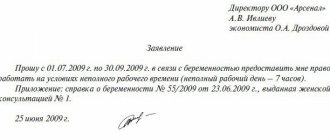The daily allowance is set by the organization
A business trip is a business trip of an employee outside the place of permanent work to carry out an official assignment (Article 166 of the Labor Code of the Russian Federation). Employees sent on a business trip must be reimbursed (Article 168 of the Labor Code of the Russian Federation):
- travel expenses;
- housing rental costs;
- daily allowance – additional expenses associated with living outside your permanent place of residence;
- other expenses incurred on a business trip in agreement with the administration.
The amount of daily allowance is not regulated by current legislation and remains at the discretion of the employer (Part 4 of Article 168 of the Labor Code of the Russian Federation). Typically, when setting daily allowances, organizations are guided by daily payment limits that are not subject to personal income tax and insurance contributions. Let us remind you that daily allowances up to 700 rubles/day for business trips within the Russian Federation and 2,500 rubles/day for business trips abroad are not subject to personal income tax and insurance contributions. However, linking the amount of daily allowance to the limit is not a dogma, and it can be set at any amount. The main thing is that they should not be less than the daily payments established for institutions financed from the budget (the daily allowance for employees of federal institutions is 100 rubles) (for more details, see “Daily allowance in 2018”).
How to calculate average earnings for weekends on a business trip
The Regulations on Business Travel do not directly say whether it is necessary to pay the average salary for weekends or holidays on which the business trip occurred. It is only stipulated that payment for a seconded employee if he is involved in work on weekends or non-working holidays is made in accordance with the labor legislation of the Russian Federation.
Automatically calculate the salary of a posted worker according to current rules Calculate for free
However, from this general phrase we can draw the following conclusion: it is necessary to calculate average earnings for weekends and holidays only if the person was actually involved in work on these days. This means that if an employee, while on a business trip, rests on weekends and holidays, then the average salary for these days is not paid to him.
If the employer decides that the posted worker must work every day, including on weekends, then he will have to pay for work on those days that are intended for rest. Moreover, in an increased (at least double) size. Or the employee must be given a day off for each day he worked on his day off (subject to his written application). Then the work itself on a day off is paid at a single rate (Article 153 of the Labor Code of the Russian Federation).
REFERENCE. According to Article 153 of the Labor Code of the Russian Federation, work on a weekend or a non-working holiday is paid at least double the amount. Specific amounts of payment for work on a specified day can be established by a collective agreement, local regulations, or employment contract.
Taking into account the above, the rule for paying for days off on a business trip is as follows: if the employee is resting on these days, no payment is made (average earnings are not calculated). If, by decision of the management, a posted employee works on a weekend or holiday, then this day must be paid at least double the amount, or, at the request of the employee, be given a day off (then work on a day off is paid at a single rate). Please note that it is more correct to pay for “working weekends” during a business trip not according to average earnings, but based on the remuneration system established for the employee - salary, tariff rate, etc. (Article 153 of the Labor Code of the Russian Federation, clause 9 of the Regulations on business trips).
Calculate “complex” salaries under different remuneration systems Try for free
Departure day and arrival day must be paid
As for the payment of daily allowances for the day of departure and day of arrival, they must certainly be paid regardless of what time the employee departed (arrived). This is explained as follows.
Day of departure on a business trip
The day of departure for a business trip is the day of departure of the vehicle that will take the employee to the place of business trip from the locality where his place of work is located. Even if a plane or train departs at 23:59, this day is considered the departure day. Therefore, the daily allowance for that day must be paid in full.
Day of return from a business trip
The day of arrival from a business trip is the day of arrival of the transport that the employee used to return from a business trip. It is important to understand that per diem must be paid for the day of arrival from a business trip, no matter what time it occurs. Thus, the daily allowance must be paid even if the vehicle arrived in the locality where the employer is located at 00:01.
Alimony from daily allowances paid to an employee is not withheld. The fact is that daily allowances relate to compensation payments related to business trips (Article 168 of the Labor Code of the Russian Federation, subparagraph “a”, paragraph 8, part 1, article 101 of the Federal Law of October 2, 2007 No. 229-FZ, subparagraph “p” "Clause 2 of the List, approved by Decree of the Government of the Russian Federation dated July 18, 1996 No. 841). Moreover, the amount of daily allowance does not matter (for more details, see “Alimony cannot be withheld from daily allowance”)
An employee returns to work on the day he returns from a business trip: is it necessary to pay per diem?
Rostrud experts explained how the day an employee returns from a business trip is paid if he goes to work on that day.
The agency notes that if an employee returns to work on the day of his return from a business trip, he must be paid wages. The employer is also obliged to pay the employee daily allowance for this day.
Rostrud explains that daily allowances are reimbursed to the employee for each day he is on a business trip, including weekends and non-working holidays, as well as days en route, including during a forced stopover.
The day of departure on a business trip is the date of departure of a train, plane, bus or other vehicle from the place of permanent work of the business traveler, and the day of arrival from a business trip is the date of arrival of the specified vehicle at the place of permanent work.
When a vehicle is sent before 24 hours inclusive, the day of departure for a business trip is considered the current day, and from 00 hours and later - the next day. If a station, pier or airport is located outside a populated area, the time required to travel to the station, pier or airport is taken into account.
The day of the employee’s arrival at his place of permanent work is determined in a similar manner.
The issue of an employee’s attendance at work on the day of departure on a business trip and on the day of arrival from a business trip is resolved by agreement with the employer.
Rostrud provides such explanations on its website, answering questions from workers and employers.
BUKHPROSVET
When an employee is sent on a business trip, he is guaranteed to retain his job, average earnings, as well as reimbursement of expenses associated with the business trip. Earnings are retained for all days of work according to the schedule established by the sending organization. During a business trip, an employee working part-time retains the average salary from the employer who sent him on a business trip.
The actual length of stay on a business trip is determined by travel documents. If the employee travels by official or personal transport, the actual length of stay at the place of business trip is indicated in the memo. The note should be accompanied by a waybill, route sheet, invoices, receipts, cash receipts and other documents confirming the transport route.
Upon returning from a business trip, the employee is obliged, within 3 working days, to submit to the employer an advance report on the amounts spent in connection with the business trip and make a final payment for the cash advance issued to him before leaving for the business trip for travel expenses. Documents on the rental of accommodation, actual travel expenses and other expenses associated with the business trip are attached to the advance report.
Is per diem paid to an employee for one calendar day of being on a business trip?
Regarding daily allowance payments:
In accordance with the provisions of paragraphs. 82) clause 1 art. 1 of the Labor Code of the Republic of Kazakhstan, business trip is the sending of an employee by order of the employer to perform job duties for a certain period of time outside the place of permanent work in another locality, as well as sending an employee to another locality for training, advanced training or retraining.
According to the provisions of paragraphs. 1) clause 2 art. 127 of the Labor Code of the Republic of Kazakhstan, employees sent on business trips are paid daily allowances for calendar days of being on a business trip, incl. during travel time.
Thus, when sending an employee on a business trip, daily allowances are paid to the employee for each calendar day of being on a business trip, incl. during travel time.
Accordingly, if an employee is sent on a business trip for 1 calendar day, then the employer is obliged to pay him per diem for 1 calendar day according to the standards approved by the Company.
Regarding the inclusion of daily allowances as deductions under the corporate income tax:
In accordance with the provisions of paragraph 1 of Art. 242 of the Tax Code of the Republic of Kazakhstan, the taxpayer’s expenses in connection with the implementation of activities aimed at generating income are subject to deduction when determining taxable income, taking into account the provisions established by Art. 242 - 263 of the Tax Code of the Republic of Kazakhstan, with the exception of expenses that are not deductible in accordance with the Tax Code of the Republic of Kazakhstan.
According to the provisions of paragraphs. 3) clause 1 art. 244 of the Tax Code of the Republic of Kazakhstan, the following expenses for compensation during business trips are subject to deduction:
3) daily allowance in the amount established by the decision of the taxpayer, paid to the employee for the time he is on a business trip, including days of temporary incapacity for work of the posted employee;
Taking into account the provisions of paragraphs. 2) clause 2 art. 244 of the Tax Code of the Republic of Kazakhstan, for the purposes of the above paragraph 1 of Art. 244 of the Tax Code of the Republic of Kazakhstan:
2) the time spent on a business trip is determined based on:
— an order or written instruction from the employer to send the employee on a business trip;
— the number of business trip days based on the dates of departure to the place of business trip and arrival back, indicated in the documents confirming travel, including the dates of departure and arrival. In the absence of such documents, the number of business trip days is determined based on other documents confirming the date of departure to the place of business trip and (or) the date of arrival back, provided for by the taxpayer’s tax accounting policy.
Thus, if a business trip is related to the production needs of the Company, then, based on the above provisions of the norms, it is legal to deduct the daily allowance paid to the employee for 1 calendar day of being on a business trip as deductions under the corporate income tax.
Regarding the recognition of daily allowance as an employee’s income:
In accordance with the provisions of paragraphs. 2) clause 2 art. 319 of the Tax Code of the Republic of Kazakhstan, compensation for business trips, incl. for the purpose of training, advanced training or retraining of an employee in accordance with the legislation of the Republic of Kazakhstan:
- for a business trip within the Republic of Kazakhstan - daily allowance not exceeding 6 times the monthly calculation index established by the law on the republican budget and valid as of January 1 of the corresponding financial year, for each calendar day of being on a business trip for a period not exceeding 40 (forty) calendar days days on a business trip;
- for a business trip outside the Republic of Kazakhstan - daily allowance not exceeding 8 times the monthly calculation index established by the law on the republican budget and valid as of January 1 of the corresponding financial year, for each calendar day of being on a business trip for a period not exceeding 40 (forty) calendar days days on a business trip.
If the employee’s daily allowance for 1 calendar day of a business trip does not exceed the above limits, then the daily allowance is not recognized as the employee’s income for tax purposes.





